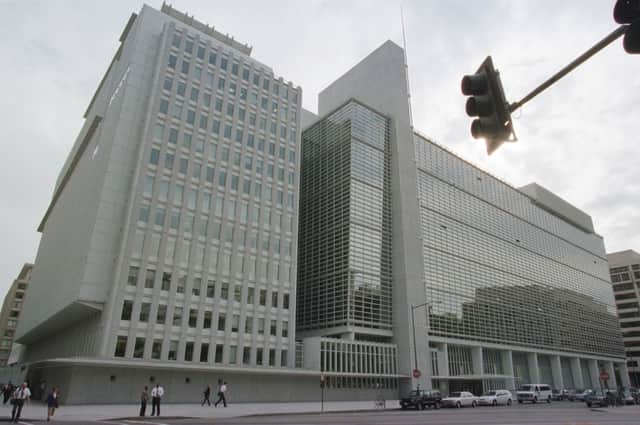Why Scotland is the natural home of ethical finance – Chris Tait


Even with the highest increase for nearly three decades, 1.75 per cent is way below the levels recorded in the late ’90s and the early to mid-noughties.
That’s why, in recent years, many who can afford to do so have turned to investment funds instead.
Advertisement
Hide AdAdvertisement
Hide AdThere is always risk attached to this, and with a recession looming and inflation rampant, it’s vitally important to remember that values can go down further. But the flip side is that you could be buying at a low.
Anyone considering putting money into funds is strongly advised to do so for at least five years, giving more time to ride out the impending bumps in the market.
But another key consideration is how to invest sustainably.
YouGov surveys for the Edinburgh-based Global Ethical Finance Initiative show that Scots consider it important that their investments reflect their views about ethical, environmental, and social issues.
Yet many people who have pensions don’t quite think of themselves as investors, when in fact they are. Others who invest their savings directly in funds perhaps don’t realise the options available to them.
People want financial services companies to take the lead and do more to help.
It’s clear that many people do not yet know how to make responsible investment decisions for themselves, which is why we need to explore awareness-raising and education ideas so that everyone is empowered to take the decisions which reflect their own ethical values.
Next month, the Ethical Finance Global 2022 summit will be held in Edinburgh, which will focus on the role of finance in today’s world, including protecting and restoring nature and biodiversity. With more than half of all Scots indicating the importance of taking ethical, environmental and social issues into account in their investments, Scotland is the natural home of ethical finance.
Edinburgh hosts a large financial sector, and this is something which the institutions must address in the wake of the COP26 climate summit.
Advertisement
Hide AdAdvertisement
Hide AdAmong those attending who will call for greater action are the head of the World Bank and the Bank of England.
Financial institutions undeniably have more to do – and that will be highlighted at the summit – but sustainable investment choices are already becoming increasingly available.
Yet standing in the way of that is a clutter of vague jargon. A fund can be called sustainable, ethical, responsible, green, stewardship, or combinations of these labels and more.
Such labels are used quite inconsistently and two funds with sustainable in their names may mean two different things.
Regulation is trying to help sort this out for the investing public, but time will tell if it will be able to.
Proponents will tell you that sustainable investing will make you more money than alternatives and the critics will tell you it will make less.
As with any investment, returns can vary, but by choosing to invest responsibly you can put your money more in line with your world view and help address the sustainability challenges the world faces.
Chris Tait is chief operating officer of the Edinburgh-based Global Ethical Finance Initiative.
Find out more and register for Ethical Finance Global 2022
Comments
Want to join the conversation? Please or to comment on this article.
